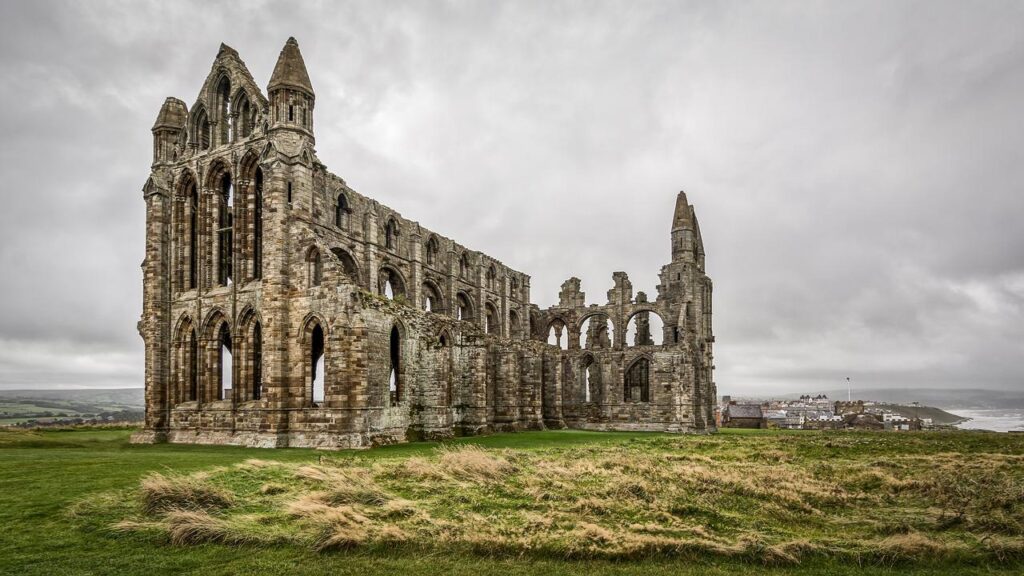The Bachelor of Science (BS) degree emphasizes greater specialization in history, either in public history or in a minor field outside of history, and a course in statistics. These programs are designed for students interested in either public history or in quantitative analysis and the mastery of social science models and methods. Students who plan to go to graduate school in history should consider the possibility of taking language courses as electives, since most graduate programs continue to require foreign language competence.
History is more than names and dates; it is the study of the human experience in all its facets, not just what happened, but how and why. If you’re curious about the whys behind landmark events like the fall of Communism or Neil Armstrong walk on the moon, then our history program will interest you. Learn to think critically, develop research skills, and communicate more effectively. Clarify your understanding of human behavior past, present, and future.
Market Value:
History is the most common subject in Pakistan. Candidates holding a bs in history degree are earning well in Pakistan. Starting salary of bs degree holder in public sectors starts from 60,000 to 80,000 and in private the salary may start from 70,000 to 90,000. There are so many career opportunities in this field both in public and private sector.
Admission Criteria:
B.S. History is a 4-year undergraduate course spreading over 8 semesters. Those who have completed F.A/F.Sc or equivalent with minimum second division are eligible for admission. Admission is granted on merit determined on the basis of scores earned in admission test and academic record.
ENTRY TO BS HISTORY:
Eligibility |
Selection Criteria |
| Intermediate or 12 year education with minimum 50% Marks | Academic Qualification: 60% Test/Interview: 40% |
B.S. history: Course Highlights
Course Level |
Duration of the Course |
Examination Type |
Credit hours |
| Under Graduate | 4 years (8 semesters) | Semester-Wise | 132 |
Driving institutions:
Institution |
City |
| University Of Karachi | Karachi |
| University of Sindh | Jamshoro |
Undergraduate:
Majoring in History prepares students to work in a wide variety of fields. Most History graduates use the skills and knowledge they acquire in college to pursue careers in business or the public sector. They are able to conceptualize complex questions that do not have easy answers. They can read critically, manage and analyze information, build logical arguments, write persuasively, conduct independent research and work on teams. We encourage History majors to visit career services during their sophomore year to begin exploring career options. A small number pursue PhD’s and become history professors. Many go to law school, and some become middle or high school teachers. Students interested in going to graduate school to pursue healthcare careers should choose the BS in History combined with the Pre-Professional Health Science minor. Academic advisers can help students explore other minors and certificates to enhance their employability or prepare them for specific graduate programs.
Related job fields:
- Editing
- Foreign services
- Foundation history work
- Legal assistance
- Attorney
- Anthropologist
- Archivist
- Broadcast journalist
- PPC specialist
- Information officer
- Civil services administrator
- Librarian
- Archaeologist
- Economist
- Geoghraphers
- High school teachers
- Sociologist
- Writers and authors
Work description:
- Analyze diverse experiences of or viewpoints on past events or historical developments.
- Recognize both continuity and change over time and describe their consequences.
- Complete a substantial historical research project, identifying and interpreting primary and secondary sources and communicating results effectively in writing and orally.
- Construct arguments that explain how history can inform the present.
- Evaluate credibility, position, or perspective of various forms of historical evidence.
- Compare and connect local, national, and global histories
- Create complex interpretations of the past collaboratively with public audiences.
Pros
- Above-average salary compared to all occupations
- Options to work in related fields, such as research or education
- Flexible work schedule if you’re employed independently
- Variety of professional settings (governments, museums and historical societies)
Cons
- A master’s or doctoral degree is generally necessary
- Keen job competition because the number of openings were expected to be lower than the number of historian applicants
- Job growth in some types of organization may be affected by a lack of funding
- Travel may be required for fieldwork
CONTENT CURRICULUM POWERED BY UNIDESK

